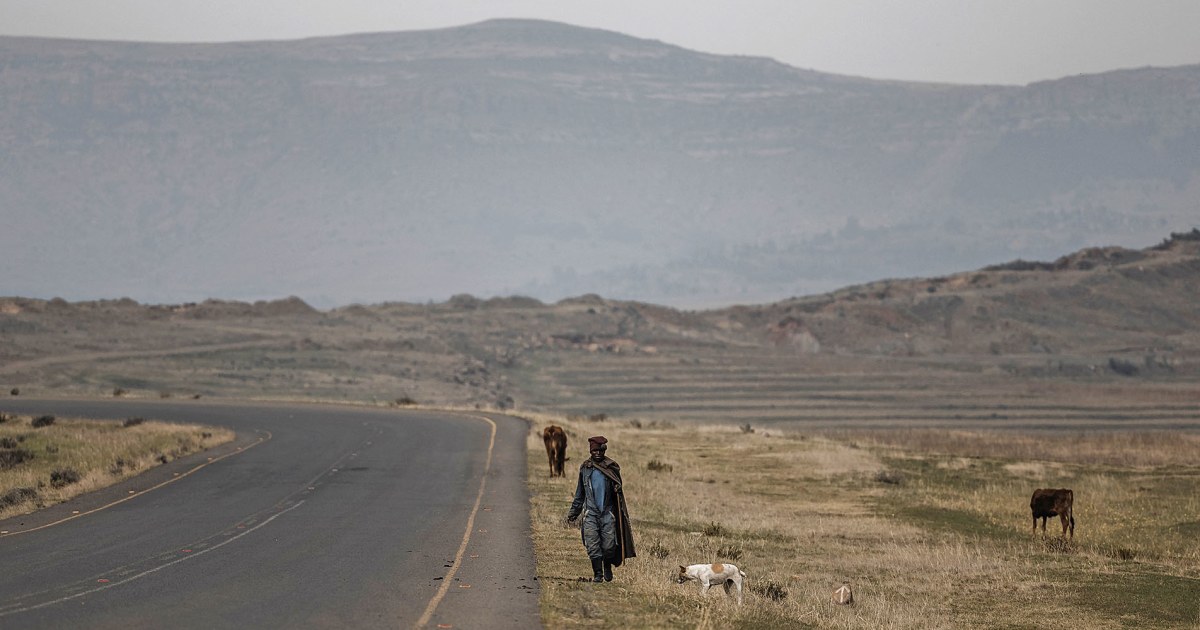Trump's Tariffs: A Lesotho Crisis? Examining the Ripple Effects of US Trade Policy
The ripple effects of global trade policies are often far-reaching and unpredictable. While the immediate impacts of Donald Trump's tariffs might have seemed focused on major economies, the consequences have extended to even the most unlikely corners of the world, raising questions about the vulnerability of smaller nations. This article delves into the potential impact of Trump's tariffs on Lesotho, a small, landlocked country in southern Africa, highlighting the complexities of global trade and its unequal impact.
Lesotho's Economy: Precariously Balanced
Lesotho's economy is heavily reliant on exports, primarily textiles and apparel, much of which is destined for the United States. This dependence makes it exceptionally vulnerable to shifts in US trade policy. The country's participation in the African Growth and Opportunity Act (AGOA) had previously provided preferential access to the US market, bolstering its textile industry. However, Trump's tariffs, designed to protect US industries, threatened to disrupt this carefully constructed balance.
Key Vulnerabilities:
- Dependence on AGOA: Lesotho's economy is significantly tied to the benefits offered by AGOA. Any changes or uncertainty surrounding this program directly impacts its economic stability.
- Limited Diversification: The lack of economic diversification leaves Lesotho heavily exposed to shocks in its primary export sector.
- Fragile Infrastructure: Poor infrastructure can hinder the country's ability to adapt quickly to changing market conditions and explore alternative export avenues.
The Impact of Tariffs: Direct and Indirect Effects
While Lesotho wasn't a primary target of Trump's tariffs, the indirect consequences have been significant. The disruption to global supply chains, increased costs for raw materials, and reduced demand for Lesotho's textile exports all contributed to economic hardship.
Direct Impacts:
- Reduced Exports: Tariffs imposed on competing textile products from other countries could indirectly reduce demand for Lesotho's goods.
- Increased Costs: Higher tariffs on imported raw materials needed for Lesotho's textile production increased production costs, impacting profitability and competitiveness.
Indirect Impacts:
- Global Supply Chain Disruption: The broader uncertainty caused by the trade war disrupted global supply chains, making it challenging for Lesotho to secure reliable markets and materials.
- Reduced Foreign Investment: The uncertainty surrounding US trade policy may have deterred foreign investment in Lesotho's textile sector, hindering growth.
Navigating the Challenges: Lesotho's Response
Faced with these challenges, Lesotho has had to adapt its economic strategies. This has involved exploring new markets, investing in diversification efforts, and strengthening its relationships with other trading partners. However, these efforts require significant investment and time, highlighting the long-term vulnerabilities created by such trade policies.
Strategies for Resilience:
- Market Diversification: Actively seeking new export markets in Africa and beyond to reduce reliance on the US.
- Investment in Diversification: Promoting investment in other sectors of the economy to reduce dependence on textiles.
- Strengthening Regional Integration: Collaborating with neighboring countries to improve regional trade and reduce vulnerability to external shocks.
Conclusion: A Lesson in Global Interdependence
The potential impact of Trump's tariffs on Lesotho underscores the interconnected nature of the global economy. Even seemingly isolated nations are affected by major shifts in trade policy, highlighting the need for more robust international cooperation and sustainable development strategies. Lesotho's experience serves as a stark reminder of the vulnerability of smaller economies and the crucial role international trade agreements play in promoting equitable global growth. Further research is needed to fully understand the long-term consequences of these policies on Lesotho and other similarly situated countries.
Keywords: Trump tariffs, Lesotho, AGOA, African Growth and Opportunity Act, textile industry, global trade, trade war, economic vulnerability, supply chain disruption, market diversification, sustainable development, international cooperation, global interdependence, Southern Africa.
Call to Action: Learn more about the impacts of global trade policies on developing nations. Explore resources on sustainable development and international trade.
